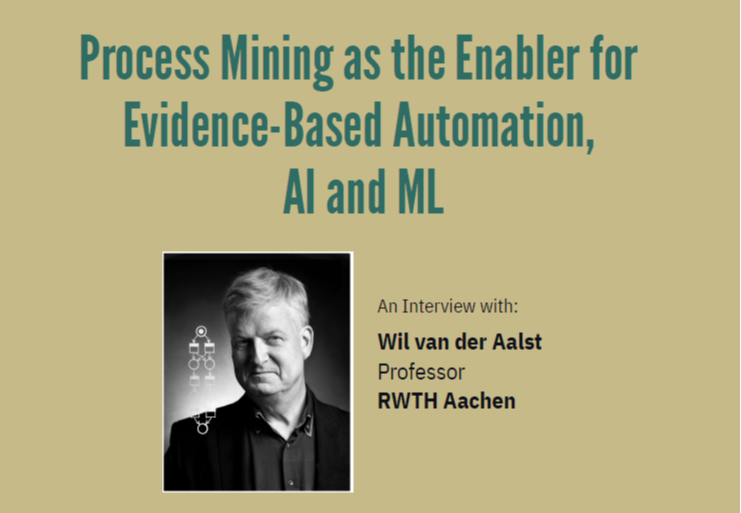Interviews

Interview: Martin Kemmer | SCHOTT
- Wann ist Data Mesh die richtige Lösung zur Erschließung des Datenwerts durch Dezentralisierung?
- Welche Entwicklungen und Trends erwartet Data Mesh und die Integration von Daten?
- Welche Herausforderungen konnte SCHOTT im Zusammenhang mit Data Governance bereits meistern?
Lernen Sie mehr darüber im Interview mit Martin Kemmer, Head of Smart Factory & OT4.0 bei SCHOTT, im Rahmen der Data MeshCon 2024! Laden Sie sich das ausführliche Interview hier kostenfrei herunter >>>

Interview: Günther Krähan & Stefan Zima | Raiffeisen Bank International AG
Günther Krähan, Head of Enterprise Architecture Management, und Stefan Zima, Data Transformation Leader / Group Program Manager bei der Raiffeisen Bank International AG, sprechen mit IQPC Germany über Data as the new Product, Daten Dezentralisierung, Herausforderungen die mit Daten verbunden sind sowie die Rolle von Schulungen, Change-Management und Mitarbeiter-Einbindung im Unternehmen.
Herr Krähan und Herr Zima sind Sprecher auf der FINARCH WEEK 2024. Mehr dazu in unserer Agenda 2024.

Video Insights: How Futuroot make Process intelligence simple; from the Intelligent Automation Artificial Intelligence 2023
In this video our partner and exhibitor Futuroot is giving some insights into their solution, which is is backed and differentiated by the company’s profound experience in implementing, automating and optimising ERP systems like SAP for Fortune 500 organisations.
As an enabler for RPA, ML and AI, join our sponsor in the exhibitor's hall to find out how Process Mining can enhance ESG and ensure compliance.

Video Interview with Nikolay Goldovich from Sanofi for Intelligent Automation Artificial Intelligence 2023
Nikolay Sanofi, Intelligent Automation Leader at Sanofi, took some time to talk to us about his career and the next big things for Sanofi and other enterprises involving Automation in their processes.

Video Interview with Nico Bitzer from Bots and People; from the Intelligent Automation Artificial Intelligence 2023
Nico Bitzer, the CEO of Bots and People, is a passionate automation leader in the industry, responsible of an amazing company growth curve at Bots and People as well as helping other enterprises in their own automation journey. We were curious at how he is managing all that, so we didn´t only invite him to speak on our 7th Intelligent Automation & Artificial Intelligence conference in June, but also arranged a video interview with him for your consideration!

Past Interview: DATA MESH - GRENZEN DER DEZENTRALITÄT
Charakterisierend für den Data Mesh-Ansatz ist die Verteilung von Datenverantwortung über die Organisation, weg von einer zentralen Verantwortung. Damit einher geht auch die Verantwortung für das Design des eigenen Datenprodukts, d.h. des Inhalts und der Struktur der für andere Geschäftsdomänen bereitgestellte Daten.

Past Interview: DATENQUALITÄTSMANAGEMENT ALS VORBEREITUNG ZUR DIGITALISIERUNG
In der Durchführung eines jeden Prozesses werden die erfassten Daten verwendet. Sobald Unstimmigkeiten im Datenhaushalt auftreten, muss der Prozessschritt unterbrochen, umgelenkt und/oder wiederholt werden. Dies kann zu Verzögerungen oder Stillstand führen. Wenn diese beschriebene Prozesskette nun im Rahmen einer Dunkelverarbeitung läuft, müssten entweder entsprechende Workaround gebaut werden oder manuelle Eingriffe die Verarbeitung wieder starten. Somit bildet eine hohe Datenqualität die Grundlage für effiziente Prozesse!

Past Interview: BEST IN CLASS BEIM DATAWAREHOUSE
Die Implementierung einer sinnvollen und gewinnbringenden Datenplattform, sei es ein Datawarehouse, ein Data Lake oder auch eine andere Form des Data Storage, setzt vor allem voraus, dass in der Vorbereitung der Datenbestand aufgeräumt wird. Denn um die Daten in geeigneter Form zu speichern, sie im Anschluss nutz- und auswertbar zu machen, ist es unabdingbar, dass sie beispielsweise möglichst frei von Doubletten sind, dass fehlerhafte Datensätze korrigiert oder bereinigt werden. Auch an dieser Stelle gilt „garbage in – garbage out“. Eine noch so gelungene Datenplattform mit den besten technischen Eigenschaften und wunderbaren Tools zur Auswertung der Daten oder angeschlossenen BI Lösungen bringt wenig Erfolg, wenn die Datenbasis schlecht ist. Daher ist die Antwort auf die Frage relativ einfach, wenn auch in der Umsetzung eine Herausforderung. Um ein aufgeräumtes Datawarehouse zu implementieren, benötigt man einen aufgeräumten Datenbestand.

Interview: Sharpening an axe before cutting a tree... preparation and kick-off of IA; from the Intelligent Automation Artificial Intelligence 2023
In this Interview Anna Alechno, Global Process Excellence and Intelligent Automation Lead at Pepsico, outlines challenges, strategies and lessons learned on her automation journey.

Interview: Process Mining as the Enabler for Evidence-Based Automation, AI and ML; from the Intelligent Automation Artificial Intelligence 2023
Prof.dr.ir. Wil van der Aalst is a full professor at RWTH Aachen University, leading the Process and Data Science (PADS) group. He is also the Chief Scientist at Celonis, part-time affiliated with the Fraunhofer FIT, and a member of the Board of Governors of Tilburg University. He also has unpaid professorship positions at Queensland University of Technology (since 2003) and the Technische Universiteit Eindhoven (TU/e). Currently, he is also a distinguished fellow of Fondazione Bruno Kessler (FBK) in Trento, deputy CEO of the Internet of Production (IoP) Cluster of Excellence, co-director of the RWTH Center for Artificial Intelligence. His research interests include process mining, Petri nets, business process management, workflow automation, simulation, process modeling, and model-based analysis. Many of his papers are highly cited (he is one of the most-cited computer scientists in the world and has an H-index of 167 according to Google Scholar with over 127,000 citations), and his ideas have influenced researchers, software developers, and standardization committees working on process support. He previously served on the advisory boards of several organizations, including Fluxicon, Celonis, ProcessGold/UiPath, and aiConomix. Van der Aalst received honorary degrees from the Moscow Higher School of Economics (Prof. h.c.), Tsinghua University, and Hasselt University (Dr. h.c.). He is also an IFIP Fellow, IEEE Fellow, ACM Fellow, and an elected member of the Royal Netherlands Academy of Arts and Sciences, the Royal Holland Society of Sciences and Humanities, the Academy of Europe, and the North Rhine-Westphalian Academy of Sciences, Humanities and the Arts. In 2018, he was awarded an Alexander-von-Humboldt Professorship.




